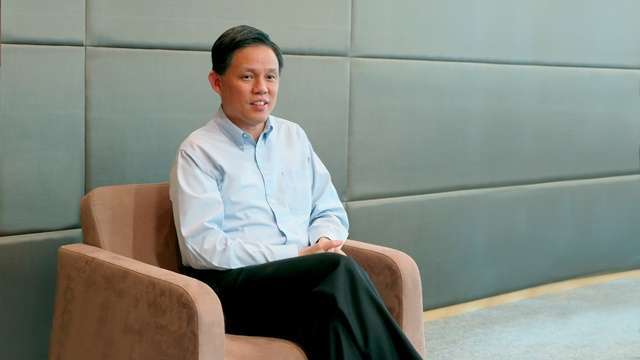TL;DR – He’s made the Labour Movement quite unusual indeed.
Chan Chun Sing is ending his stint as the Secretary General of NTUC. This was his last May Day as the Secretary General of NTUC and he is expected to relinquish his role as labour chief to move over to the Ministry of Trade and Industry soon.
In the short time he has been on loan from the government to NTUC, he has turned the labour movement into something quite unusual.
His last May Day media briefing emphasised the changes and developments that happened within the labour movement over the past few years.
Here are the four key things he’d said in his last May Day media briefing.
1. Get tomorrow’s unemployed to tomorrow’s jobs
Minister Chan highlighted that many countries only help displaced workers into jobs, hence they’re more concerned with protecting jobs. Singapore is different. We want to protect workers, not jobs. We want them to know the opportunities, training programmes, and get them there.
That’s why NTUC keeps telling workers about disruption, trying to convince workers to pick up new skills for their current industry and even prepare to transition to a different industry.
In fact, the labour movement does more than just tell and nudge. They work with the various government agencies and other stakeholders to find out what future jobs there are, what future skills will be in demand, they get themselves involved with the Industry Transformation Maps (ITMs) and to mobilize the workers now to equip themselves with future skills for future jobs.
2. Through Training, Training, Training
A key strategy of getting tomorrow’s unemployed to tomorrow’s job is to focus on continuous training. Minister Chan pointed out that NTUC is actively working with Workforce Singapore (SSG) and SkillsFuture Singapore (WSG) on mobilising more workers to go for relevant training.
Specifically, NTUC will work with the government and private sector identify the needs of the industries, and work closely with the training agencies to make sure we upskill our workers ahead of time.
The symbiotic relationship between NTUC and the People’s Action Party has also led to frequent dialogues and exchanges where the policymakers can hear ground feedback and interact directly with the union leaders and workers to better understand the challenges they’re facing.
In addition to that, NTUC has also set up a new Training Council to help workers better tackle future disruptions.
The Training Council will take charge of curating and delivering training and certification through cooperation with Institutes of Higher Learning (IHLs), professional associations and companies. The council will be made up of NTUC central committee members, tripartite partners and key leaders in the training industry who will meet once every three months to discuss training needs across the 23 industries under the Industry Transformation Programme.
NTUC will then step in to create training maps, communicate the training needs to workers and mobilise workers for training. Learning materials will be “bite-sized” and “just-in-time” so that workers can “learn something any day and any time” which can be as simple as reading an article for five to 10 minutes while commuting.
3. For every worker
Under Minister Chan’s leadership, NTUC updated its constitution at its Ordinary Delegates’ Conference last November, allowing it to expand its network to better serve all working people in Singapore, regardless of sector, collar or nationality.
Minister Chan explained that while the unions remain the bedrock of the labour movement, NTUC’s U Associate (UA) community of professional guilds and associations has grown in number from 58 in 2017 to 67 today. This has enabled professionals, managers and executives (PMEs) to access industry expertise and widen their professional networks.
Similarly, NTUC’s U SME network has been working with Government partners and trade associations to better support small- and medium-sized enterprises (SMEs), especially in upskilling their workers.
NTUC’s U FSE also continues to represent and protect the interests of freelancers and self-employed individuals while NTUC’s Migrant Workers’ Centre (MWC) and Centre for Domestic Employees (CDE) have been working with the Government to help workers better settle in Singapore and support them in resolving issues.
4. And providing working people with good quality, affordable services
Minister Chan highlighted that NTUC’s social enterprises are coming together to provide an integrated suite of services for workers and their families. To provide better quality services to workers, NTUC has started a unit to gain insights into members’ data. He’d said,
“The social enterprises of the National Trades Union Congress are coming together to provide an integrated suite of services to workers and their families, enabled by data.”
NTUC has also teamed up with other organisations to offer more products and services. For example, to serve migrant workers and domestic helpers, NTUC has partnered POSB.
To serve all workers, NTUC FairPrice has partnered with Grab.
Making Singapore’s Labour Movement very unusual
Put together, Mr Chan’s final May Day media briefing describes a labour movement that is very unusual. But with the economy undergoing rapid disruption, an unusual labour movement might just be what Singaporean workers need.
For now, here’s a snippet of Prime Minister Lee Hsien Loong’s May Day Rally speech where he spoke about Minister Chan’s work in the labour movement.
